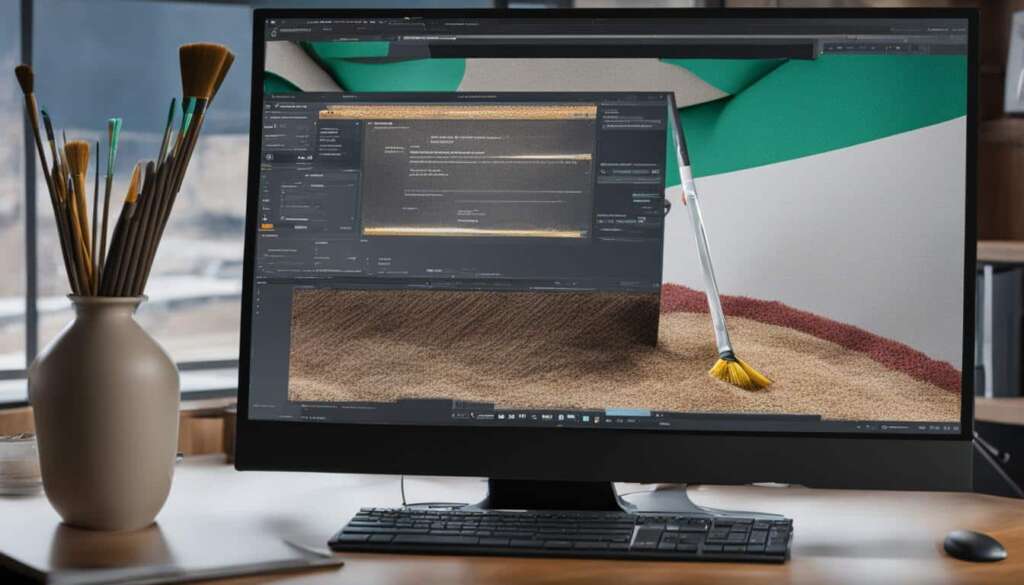Table of Contents
When it comes to purchasing a new computer, understanding PC specs is essential. A basic knowledge of computer architecture and the critical components of a computer will help you make an informed decision that meets your computing needs.
The key components to consider when looking at PC specs are processors, RAM, storage, graphics cards, and the motherboard. These components play a vital role in determining the performance and capabilities of your computer.
Processors, often referred to as the engine of your computer, are responsible for executing tasks. They are measured in terms of clock speed (GHz) and the number of cores and threads. The clock speed determines how quickly a processor can execute instructions, while the number of cores and threads affects its multitasking capabilities.
RAM, or Random Access Memory, is the temporary memory used by your computer to hold applications and data currently in use. The amount of RAM you have affects your computer’s ability to handle multiple tasks simultaneously. So, whether you’re browsing the web, gaming, or editing videos, having enough RAM is crucial.
Storage is another critical component to consider. There are two main types of storage: hard disk drives (HDD) and solid-state drives (SSD). HDDs offer larger storage capacities and are more affordable, while SSDs provide faster performance and are lighter. Your choice between the two depends on your needs and budget.
Graphics cards are essential if you’re into video editing or gaming. They handle the intensive graphics processing required for these tasks. Finally, the motherboard acts as the foundation of your computer, connecting all the components together.
By understanding these critical components and their specifications, you’ll be able to make a well-informed decision when purchasing a new computer. Whether you’re a casual user or a power user, knowing your PC specs will ensure you get the right computer for your needs.
Processors: The Engine of Your Computer
Processors, also known as CPUs, are the heart and soul of a computer. As the primary component responsible for executing tasks, the processor plays a vital role in determining the overall performance of your system.
The performance of a processor is influenced by several factors, with clock speed being one of the most important. Clock speed refers to the number of cycles a processor can execute per second and is measured in gigahertz (GHz). A higher clock speed generally translates to faster processing speeds, allowing for smoother multitasking and quicker program execution.
However, it’s worth noting that clock speed alone doesn’t tell the whole story. Processors come in various models, each with its own features and capabilities. Some models are optimized for specific tasks, such as gaming or content creation, while others cater to general computing needs. It’s essential to consider your specific requirements and choose a processor model that aligns with them.
Additionally, processors can have multiple cores and threads, which play a crucial role in multitasking. Cores are individual processing units within the CPU that can execute tasks independently, while threads are virtual cores that allow for even more efficient multitasking. A higher number of cores and threads can significantly enhance your system’s multitasking capabilities, ensuring smoother performance when running multiple applications simultaneously.
To illustrate the impact of cores and threads, let’s consider a comparison. A quad-core processor with eight threads will generally outperform a dual-core processor with four threads in multitasking scenarios. The additional cores and threads enable the quad-core processor to handle more tasks simultaneously, resulting in improved efficiency and overall system performance.
Understanding these specifications, including clock speed, model, cores, and threads, is crucial in choosing the right processor for your needs. Whether you’re a casual user, a professional in need of specialized performance, or someone who loves gaming, selecting the appropriate processor will significantly impact your computer’s capabilities.
Processor Comparison Table
| Processor | Model | Clock Speed (GHz) | No. of Cores | No. of Threads |
|---|---|---|---|---|
| Intel Core i5-11600K | i5 | 3.9 | 6 | 12 |
| AMD Ryzen 9 5950X | Ryzen 9 | 3.4 | 16 | 32 |
| Intel Core i9-11900K | i9 | 3.5 | 8 | 16 |
| AMD Ryzen 5 5600X | Ryzen 5 | 3.7 | 6 | 12 |
The table above showcases a comparison of popular processors, highlighting key specifications such as clock speed, number of cores, and number of threads. It provides a glimpse into the different options available in the market, aiding you in making an informed decision based on your specific computing needs.
RAM: Temporary Memory for Your Computer
RAM, or Random Access Memory, is the temporary memory used by the computer to hold applications and data currently in use. It plays a crucial role in the performance and multitasking capabilities of your computer.
RAM is measured in gigabytes (GB), with higher numbers indicating larger memory capacity. The amount of RAM you need depends on the tasks you perform on your computer.
- For basic computing tasks like web browsing and simple documents, 2GB of RAM is sufficient.
- However, if you frequently engage in multitasking or use more demanding applications like gaming and video editing, it is recommended to have at least 4GB or 8GB of RAM. This will ensure smooth operation and prevent lag.
- For heavy graphics and modeling applications, such as professional video editing or 3D rendering, 16GB of RAM is more suitable for optimal performance.
It’s important to note that different types of RAM are available, such as DDR4 and DDR3. DDR4 is the latest generation and offers faster data transfer speeds compared to DDR3, enhancing overall system performance.
By understanding the importance of RAM and its different capacities, you can make an informed decision when upgrading or purchasing a new computer. Having an adequate amount of RAM ensures your system can handle multitasking, gaming, editing, and other resource-intensive tasks effectively.
Benefits of Sufficient RAM:
Improved Multitasking: With sufficient RAM, your computer can handle running multiple applications simultaneously, allowing for smooth multitasking without slowdowns or crashes.
Enhanced Gaming Experience: Gaming performance heavily relies on RAM capacity. Sufficient RAM enables faster loading times, smoother gameplay, and reduced latency, ensuring an immersive gaming experience.
Efficient Video Editing: Video editing software requires considerable resources. Adequate RAM allows for seamless editing, rendering, and playback of high-resolution videos.
Storage: Hard Drive or Solid State Drive?
When it comes to storage, there are two main options to consider for your computer: hard disk drives (HDD) and solid-state drives (SSD).
HDDs utilize spinning platters and moving heads to read and write data, offering affordable prices and larger storage capacities, with 1TB being a common option. In contrast, SSDs have no moving parts and provide faster performance. They are lighter, more expensive, and commonly used in lightweight laptops and high-performance systems.
Deciding between an HDD and an SSD depends on your specific needs. HDDs are suitable for basic computing tasks where budget and storage capacity are priorities. On the other hand, SSDs are preferred for users seeking faster performance, especially for tasks that demand quick data access. Understanding the differences between the two storage options will help you make an informed decision when choosing a computer.
FAQ
What are PC specs and why are they important?
PC specs, or specifications, refer to the technical details and components of a computer. Understanding PC specs is essential when purchasing a new computer as it helps in making an informed decision based on the performance and capabilities of the machine.
What are the critical components to consider when looking at PC specs?
The key components to consider when looking at PC specs are processors, RAM, storage, graphics cards, and the motherboard. These components play a crucial role in determining the overall performance and capabilities of a computer.
What is a processor and how does it affect computer performance?
Processors, also known as CPUs, are the engine of a computer and are responsible for executing tasks. The performance of a processor is determined by factors like its clock speed, number of cores, and threads. These specifications impact the speed and multitasking capabilities of the computer.
What is RAM and why is it important?
RAM, or Random Access Memory, is the temporary memory used by a computer to hold applications and data currently in use. Having sufficient RAM is important for smooth multitasking and running demanding applications like gaming and video editing.
What are the different types of storage in a computer?
There are two main types of storage in a computer: hard disk drives (HDD) and solid-state drives (SSD). HDDs are more affordable and provide larger storage capacities, while SSDs offer faster performance. The choice between HDD and SSD depends on the user’s needs and preferences.







